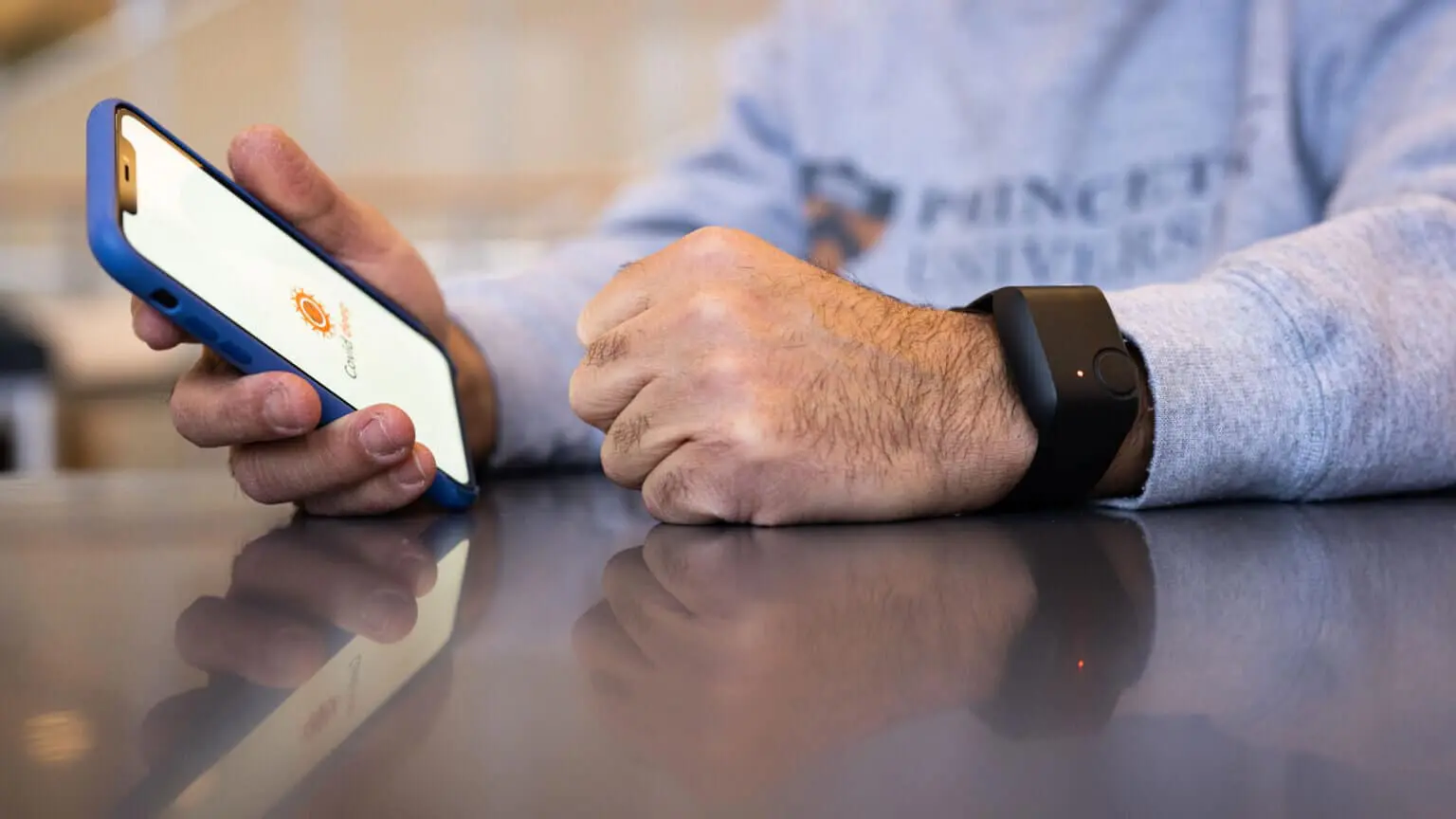A new app developed using research from Princeton University can predict in minutes if someone is infected with COVID-19 based on smartwatch data.
The new generation of diagnostic tools is based on research conducted by Neeraj Jha, professor of electrical and computer engineering at Princeton University. His team is developing artificial intelligence (AI) technology to detect COVID-19 and diagnose and monitor chronic diseases, including depression, bipolar disorder, schizophrenia, diabetes, and sickle cell anemia.
The software integrates the readings from the smartwatch’s sensors – they record heart rate, skin temperature, galvanic skin response, blood pressure and oxygen saturation levels. The user is also asked to fill out a questionnaire about symptoms of COVID-19.
“The hypothesis was that the disease has unique physiological signals that come from our body. This hypothesis seems to have been correct, at least for the few diseases we have considered. So my idea was to see if we could diagnose COVID-19 in this way.” – Neeraj Jha, Professor of Electrical and Computer Engineering at Princeton University
The researchers collected data from 87 people, 30 of whom tested negative for COVID-19 using PCR. Another 30 tested positive and had symptoms, while 27 tested positive but were asymptomatic.
The authors recorded 60 minutes of readings from volunteers from smart watch sensors about heart rate, skin temperature, and galvanic skin response – this is an indicator of the activity of sweat glands. The doctors also measured blood pressure and oxygen saturation separately. After that, the volunteers were given a questionnaire in which it was necessary to indicate whether the participant had shortness of breath, cough, fever, or other characteristic symptoms.
As a result, the team trained a model that was 98.1% accurate for COVID-19. The researchers further validated the method’s effectiveness in a larger field trial in France, the United States, and Algeria.







